Date: Monday, 08 July 2019
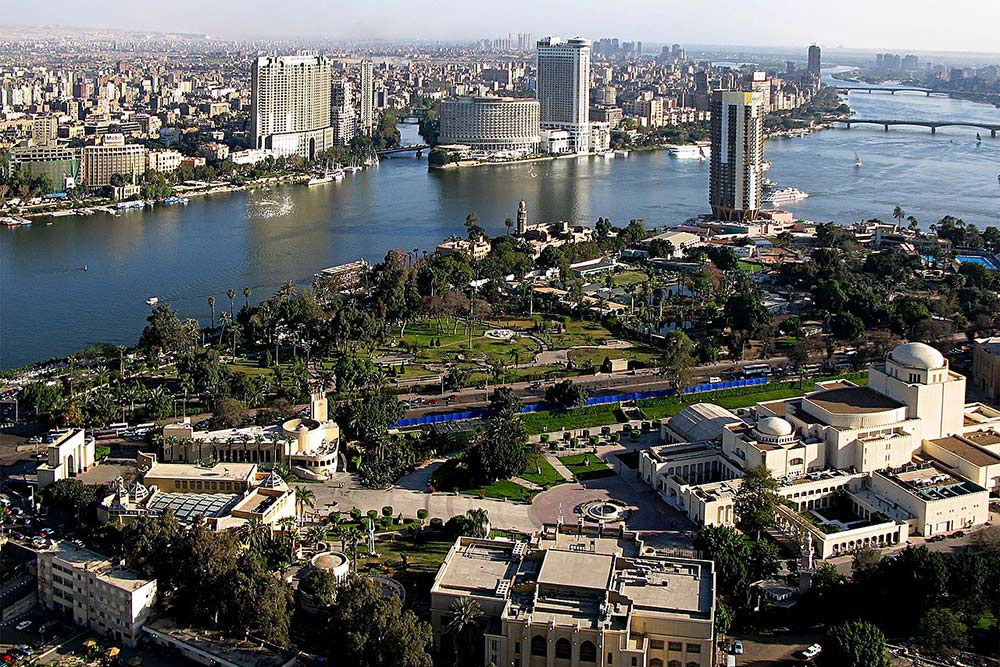
National interests and unilateral action hinder cooperation between the Nile riparian countries.1 While there is broad consensus that cooperation provides a solution to conflict over the Nile River, the question is how to transform the conflict towards cooperative behaviour. Mediation between the main conflict parties – Egypt, Sudan and Ethiopia – is necessary. The mediation efforts should be based on African approaches to conflict resolution, focusing on the realisation that one’s own well-being is intrinsically linked to the well-being of others. Mediation based on such a framework could change perspectives from national interests towards cooperation, which is not merely interested in mutual gains but reflects a sense of solidarity between the conflict parties and how benefits are interconnected.
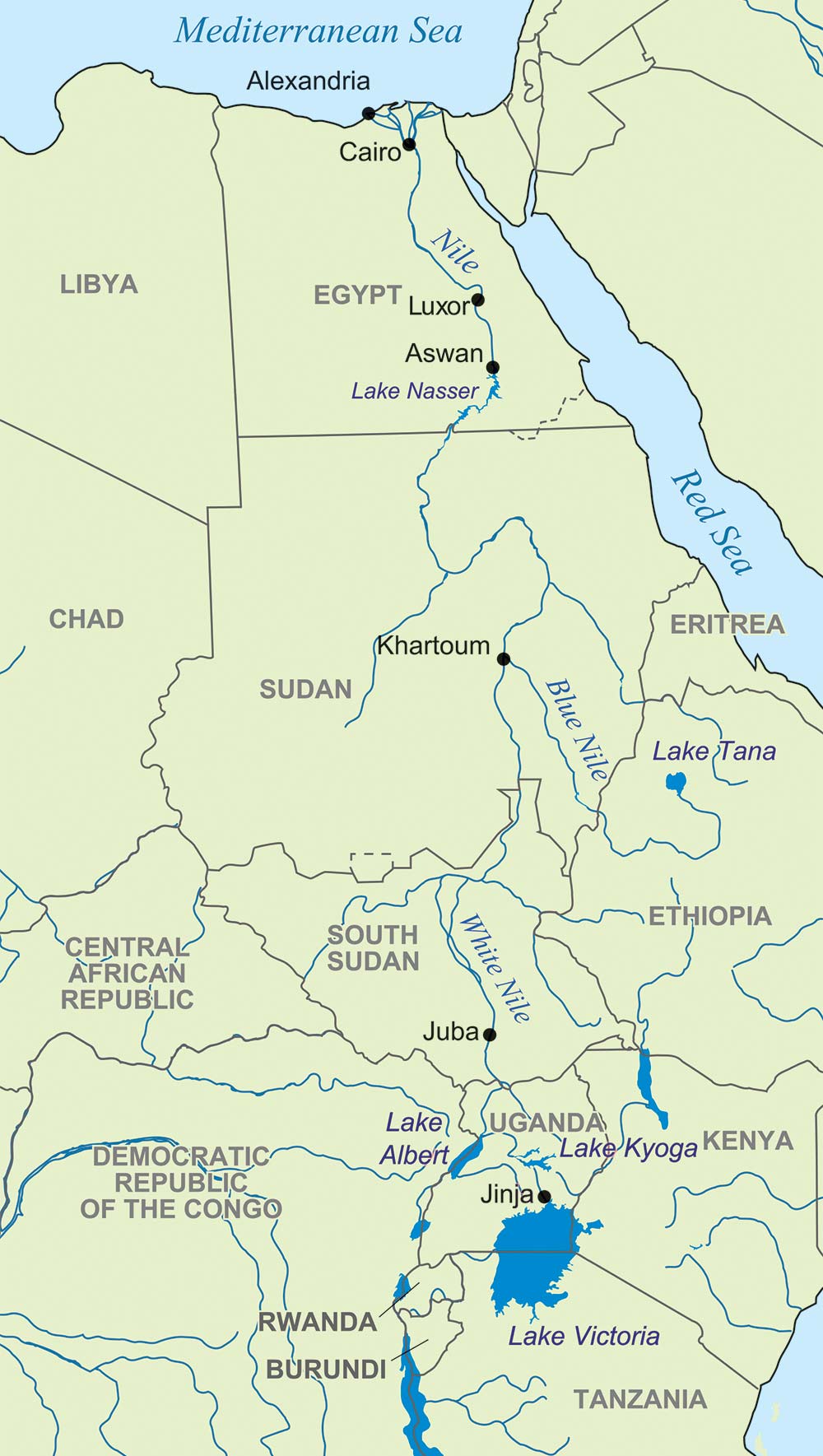
There is a broad consensus that cooperation is the solution to the Nile conflict, benefiting all parties.2 This article explores reasons for the prevalence of the conflict to make recommendations for moving towards cooperation in the Nile basin, using preventive diplomacy. The analysis rests on the (arguably broad and general) assumption that at the core of many African conflicts lies the securing of power or resources by one group at the expense of other groups.3 In light of this, the basic contradiction of the Nile dispute can be understood as follows: Egypt and Sudan insist on historical rights of usage, which give them almost exclusive control over the Nile water, while upstream countries, especially Ethiopia, challenge these claims, demanding an increasing share of the Nile water.4
Egypt, which is extremely dependent on the Nile water, is reluctant to change existing agreements and move towards cooperation, insisting on its historical rights.5 In 1929, Britain and Egypt agreed that Egypt would be allocated most of the Nile water. While Sudan also got a share, Ethiopia was excluded from the agreement.6 The agreement gave Egypt absolute control of the Nile water during the dry season and a veto right against upstream Nile projects. An agreement between Sudan and Egypt in 1959 allowed Sudan more water, but maintained the bilateral nature of the agreement between the two countries and continued the exclusion of Ethiopia.7 Even though moving towards a discourse of cooperation, Egypt maintains its historical rights and continues to develop unilateral projects along the Nile.8 Egypt is reluctant to transform discourse into action and attempts to delay a more cooperative agreement, because it has few water resources other than the Nile water and wants to maintain its dominant position regarding its use.9
Since the 1990s, Ethiopia has challenged the historical Nile water rights and started the unilateral development of water projects. This is exemplified by the Grand Ethiopian Renaissance Dam (GERD), which Ethiopia started to build in 2011. While Ethiopia justifies GERD with a need for economic development and stresses the benefits of GERD for the other riparian countries, its construction can also be seen as a way to challenge the dominance of Egypt over the Nile.10 Ethiopia started the construction of GERD even though it signed a cooperation framework with Egypt in 1993, in which Ethiopia committed to refrain from activities that harm the interests of Egypt.11 Ethiopia pushes for the equitable use of water among the riparian countries and claims to “pursue engagement with all other countries on the basis of the principle of mutual interest and respect […] Ethiopia believes that […] issues of common concern can only be addressed on the basis of constructive engagement, of dialogue and in a manner that allows for a win-win outcome for all.”12 Ethiopia’s efforts at public diplomacy in explaining the benefits of GERD, which are said to be better regional cooperation and the eradication of poverty, are praised by some. However, the construction of the dam was started unilaterally despite the discourse of cooperation, demonstrating the continued dominance of national interests. Thus, Ethiopia’s discourse of cooperation mainly appears to be a strategy to justify GERD. This point is reinforced by arguments claiming that riparian countries talk cooperation but continue to engage in unilateral projects, focusing on short-term national interests instead of long-term basin-wide cooperation.13 This is underscored by the lack of will among riparian countries to cooperate.14 Egypt and Ethiopia’s proclaimed willingness to cooperate seems to remain lip service. While calling for equitable use, Ethiopia is mainly interested in completing GERD. Meanwhile, Egypt continues to sustain its claims of using two-thirds of the Nile water. Thus, a central problem seems to be that countries are more focused on their national interests, instead of realising the benefits of cooperation.
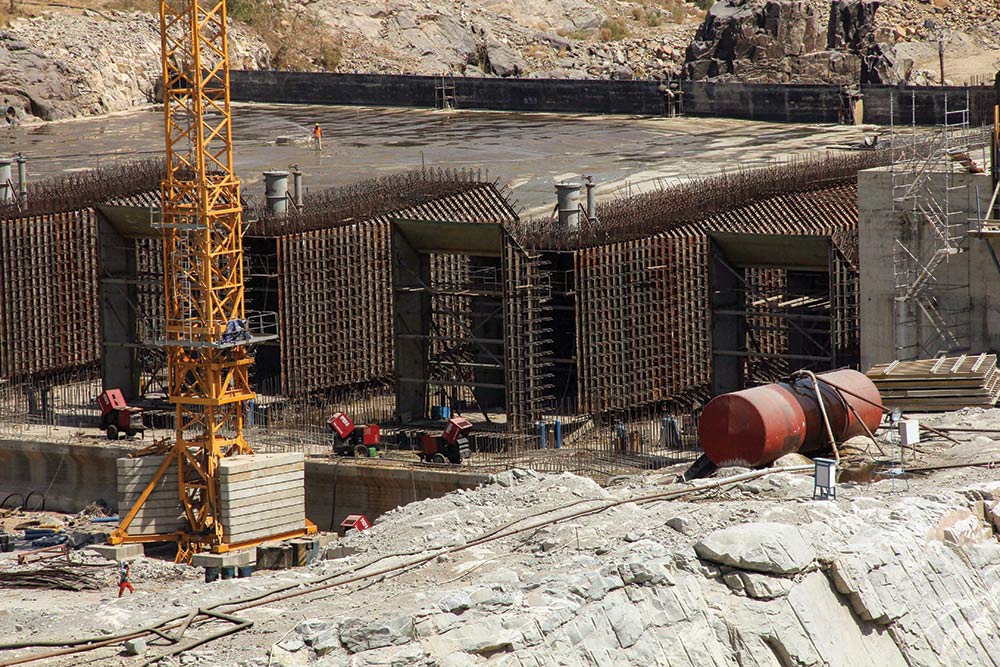
The gradual shift of Sudan’s allegiance from Egypt to Ethiopia15 can also be seen in this light. Historically, cooperation between Egypt and Sudan served to maintain their power. At the same time, Sudan is trying to get access to more water. This helps to explain why Sudan shifted towards support for GERD, realising that the dam would benefit its national interests.16
The prevalence of national interests makes a basin-wide approach to cooperation difficult to achieve. In 1999, the Nile Basin Initiative (NBI) was founded, which included nine of 10 riparian countries, while Eritrea had observer status.17 The NBI sought the equitable distribution of the Nile waters through mutually beneficial cooperation. While the NBI brought most of the riparian countries together in an institution aiming to facilitate cooperation, it failed to bring about meaningful cooperative benefits. This failure arose from a lack of commitment for cooperation by the participating countries.18 While successful in building some trust between the countries, disagreement about cooperation remained and unilateral projects continued to dominate.19 While the NBI’s goal was the fair allocation of water, it led to the upstream countries exerting more control.20
For example, Ethiopia tried to use the NBI to revoke the 1959 agreement.21 In 2010, the Nile River Cooperative Framework was signed by six upstream countries – Burundi, Ethiopia, Kenya, Rwanda, Tanzania and Uganda. Egypt and Sudan reacted by withdrawing from NBI participation and opposed the framework, because it challenged their historic rights and thus their domination of the Nile.22 This serves as another example of the primacy of national interests.
Thus, it seems clear that national interests need to be transcended to foster cooperation. Diplomacy can help to achieve this. While national interests are not the only explanation for the conflict, overcoming them is central for cooperation, particularly between Egypt, Sudan and Ethiopia as the main parties in the conflict. While the 1929 and 1959 bilateral agreements, as well as the Nile River Cooperative Framework, excluded central actors, the NBI suffered from too many actors.23 The other riparian countries are not equally dependent on the Nile water and are thus less interested in a solution. Egypt, Sudan and Ethiopia are the countries that are either using the water the most or want to increase their usage the most. These three countries are central for cooperation, since Egypt and Sudan are the main consumers of water, while 85% of the Nile water originates from Ethiopia.24 While other countries might be excluded in this analysis, it does not mean that there should not be complementary diplomatic efforts to engage the other riparian countries as well.
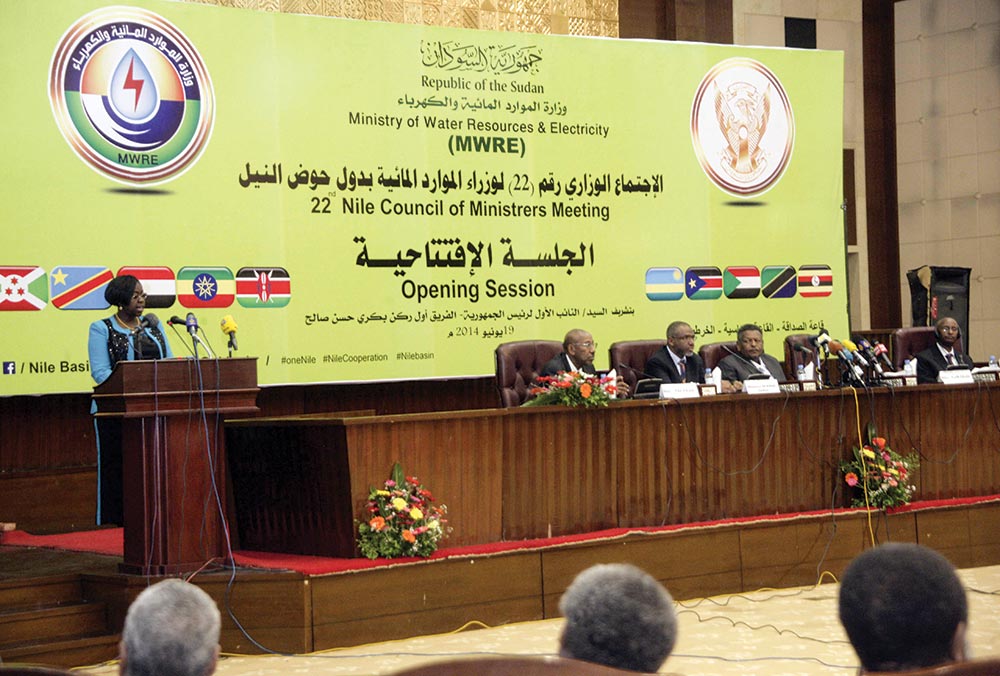
Preventive diplomacy is about avoiding violence “during times of unstable peace”.25 Since the Nile conflict has not yet turned violent, efforts at preventive diplomacy seem appropriate. Murithi stresses that “peace is not just the absence of violence but the presence of social solidarity”.26 While such a goal is arguably more far-reaching than the prevention of violence, only focusing on positive peace provides a long-term solution, and preventive diplomacy should therefore work towards the latter. The following main methods of preventive diplomacy can be identified: negotiation, good offices, mediation, conciliation and inquiry.27 Negotiations aim to identify areas of shared interest as well as conflicting issues to reach an agreement.28 However, negotiations between antagonistic parties are often dominated by the conflicting issues and tend to turn into processes of bargaining. Hence, negotiations are unlikely to change the present primacy of national interests among the countries along the Nile River.
Mediation seems to offer an alternative, because it attempts to change the perception, approach, objectives and behaviour of the conflict parties.29 The mediator’s task is to transform the process towards problem-solving. The mediator can help to unlock fixed positions, rebuild relationships and overcome protracted situations.30 Mediation provides room for the mediator to establish a framework based on African approaches to conflict resolution. Such an approach could provide an impetus to change the perceptions of the parties from a focus on national interest towards pan-African solidarity.
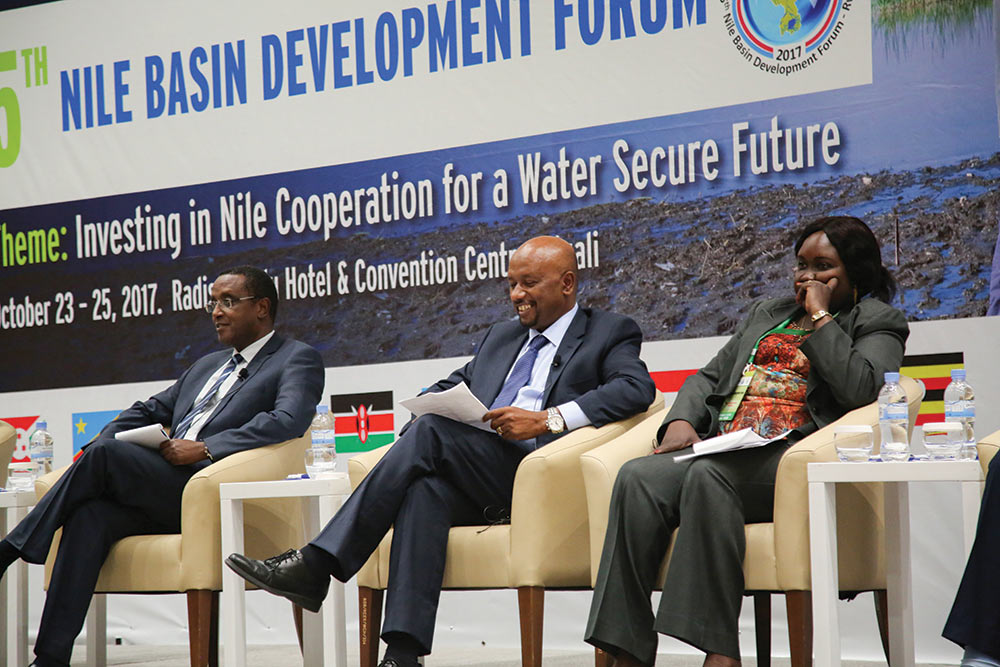
The public diplomacy envisioned by Abebe, which aims to strengthen a discourse of cooperation to prevent conflict over the Nile,31 seems more focused on rhetoric than action, while not attempting to transform national perspectives. In contrast, mediation is not a one-sided approach, but engages the actors to find a mutual understanding and solution. Conciliation and inquiry are both based on fact-finding and investigations.32 The difficulties of agreeing on technical issues and reports are exemplified by the disagreement on how to assess the impact of GERD, where national interests continue to create disagreement on the assessment of the dam. Thus, conciliation or inquiry only seem feasible at a later stage, when a shared perspective of solidarity, taking into account the well-being of the other parties, is established.
In line with calls for African solutions to African problems and a reclamation of African methods, drawing on African approaches to conflict resolution can help transcend narrow national interests and lead to cooperation. A change of perspective can be brought about by basing the mediation efforts on a framework of coexistence,33 social solidarity and interconnectedness,34 which could transcend national interests and offer perspectives towards long-term positive peace. In contrast, the mutual benefits emphasised by conventional calls for cooperation continue to be based on national benefits, thus maintaining the primacy of national interests and lacking an understanding of how those benefits are interconnected, instead of transforming the conflicts towards social solidarity, coexistence and interconnectedness.
The concept of social solidarity emphasises one’s own well-being as intrinsically linked to the well-being of others. Social stability is based on the equitable sharing of resources. Ultimately, such an understanding calls for pan-African solidarity.35 The concept of ubuntu, which “sheds light on the importance of peacemaking through the principles of reciprocity, inclusivity and a sense of shared destiny between peoples”,36 provides another example for a move towards realising the interconnectedness of people. Ubuntu emphasises the unity of humanity and promotes a culture of empathy, cooperation and resource-sharing. Furthermore, diplomatic efforts could adopt the concept of coexistence instead of domination. The logic of power understood as the struggle for domination and hegemony prevails in international politics. In contrast, adopting a logic of coexistence and working towards “peaceful existence on the basis of justice, fairness and equity”37 could change the focus from domination to cooperation. What the concepts of ubuntu, coexistence and social solidarity have in common is that they stress the interconnectedness of life: one’s own well-being is linked to the well-being of others. This argument is central in realising that solidarity is mutually beneficial and could thus change perspectives from focusing on national interests towards cooperation, by taking into account the well-being of others. Therefore, the notion of interconnectedness should be central in a mediation framework for the Nile Basin conflict. In contrast, conventional calls for cooperation focus on mutual benefits for each country – for example, the improved irrigation potential for Sudan through the construction of GERD, leading to the continued domination of national interests. However, this perspective misses how benefits are interconnected, and that they depend on the well-being of other states and their people.
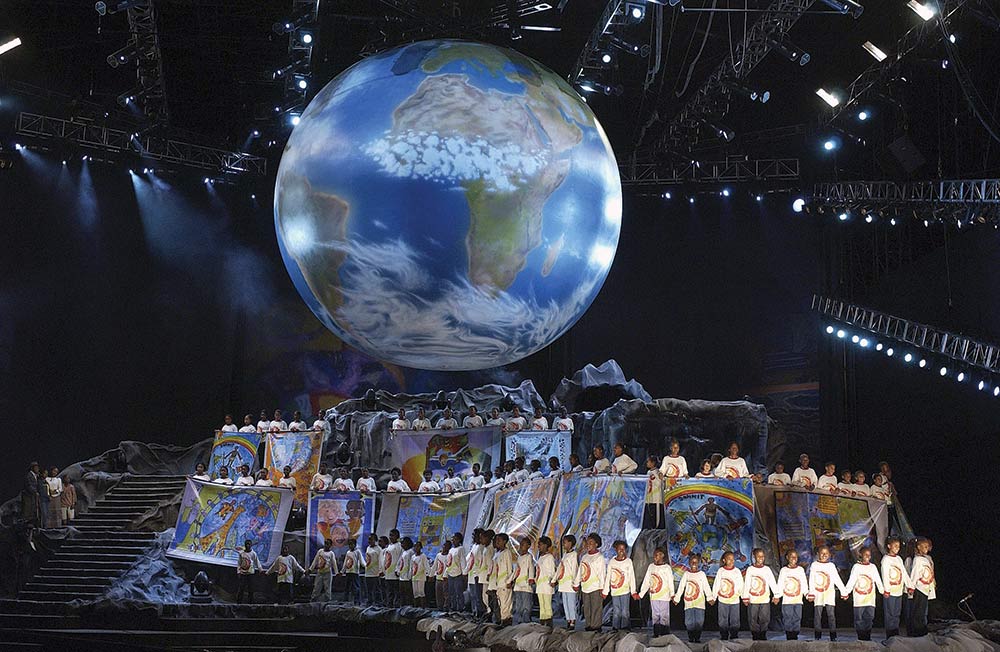
From a perspective of interconnectedness, the well-being of neighbouring states and their people is in the interest of Egypt, Ethiopia and Sudan. Emphasising this aspect could lead to compromises, instead of the primacy of national interests. For example, Egypt could acknowledge how GERD improves Ethiopia’s economic development, while Ethiopia might take into account changing water flows for Egypt, leading to policies that include the well-being of each other’s populations. In contrast, focusing on the mutual benefits of cooperation for all involved actors highlights individual national interests, while missing that it is in the interest of states that their neighbouring states and their people are also well. Such a perspective of mutual benefits blurs that GERD might not only have positive effects, but also negative consequences for Egypt. Thus, emphasising mutual benefits is less likely to lead to a change of perspectives.
This will result in compromises over the Nile water use since only the benefits are stressed, while not providing reasons for accepting disadvantages to further the well-being of other states and their people to ensure one’s own well-being. Adopting a perspective of social solidarity could transform the present ambition of Egypt, Ethiopia and Sudan to maximise their allocation of water rights to the detriment of other states towards resource-sharing, leading to coexistence instead of hegemony over the Nile.
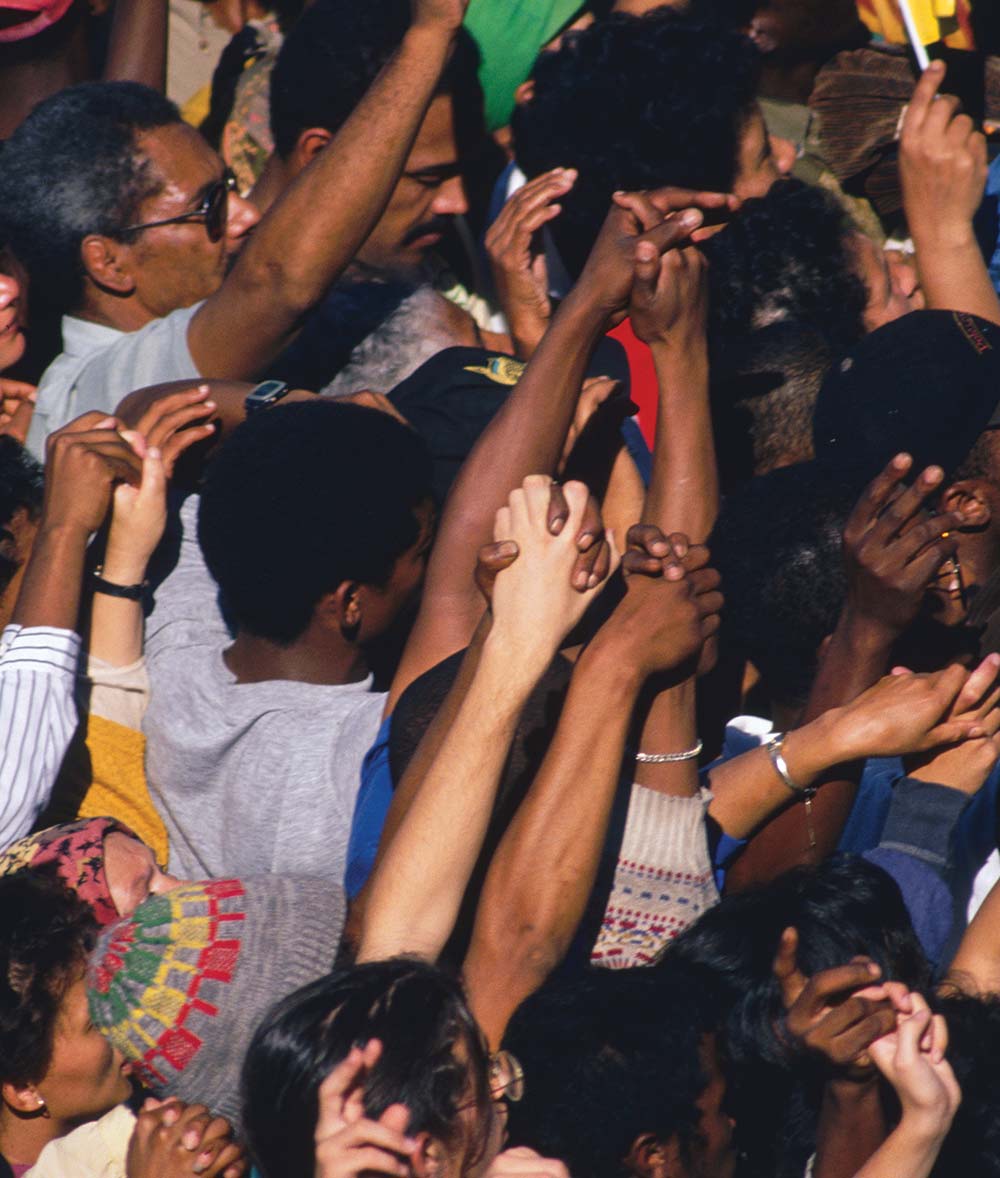
However, which concepts and ideas are most appropriate for the Nile context needs further examination and ultimately, can only be determined and developed by the conflict parties themselves. The role of the mediator is to assist the conflict parties in the process of shifting their perspectives towards the realisation of interconnectedness. Commitment, expertise and flexibility can be identified as preconditions for preventive diplomacy.38 An African solution based a these ideas of interconnectedness and coexistence could increase ownership and commitment in the process. Mediation efforts could build on the discourse of cooperation used by Egypt, Sudan and Ethiopia, and the fact that Egypt and Ethiopia “have been closely involved in the cause of African unity over the last five decades”.39 Flexibility should be guaranteed by a broad framework based on solidarity, interconnectedness and coexistence, which leaves enough room for mediation and does not impose solutions, but rather provides a framework for constructive engagement.
Non-state actors should also be included in the mediation process. The growing role of non-state entities in diplomacy is evident. Multi-track diplomacy is useful, because non-governmental organisations (NGOs) can address disadvantages of governments by providing information, and because they are often seen as more objective than states.40 Track two actors can help explore solutions from the view of the public, and complement track one diplomacy by helping to open communication and to consider alternatives.41 Thus, the inclusion of non-state actors can provide different views and help change perspectives. This is important to understand how projects such as GERD affects the livelihoods of people. Track two diplomacy should be embraced to make the process more centred on the needs of people, instead of state interests. Thus, in line with African approaches to conflict resolution emphasising the importance of inclusion and participation,42 civil society – and especially people being directly affected by changes to the Nile usage – must be included in the process. Their inclusion can help to converge the process towards an understanding based on people’s perspectives rather than narrow state interests. The inclusion of NGOs and people who depend on the Nile for farming or fishing might help to work towards cooperative solutions along the Nile.43 Thus, the involvement of civil society and communities, and the focus on social solidarity, could help to transcend the narrow, state-centric focus of the governments towards resource-sharing based on social solidarity.
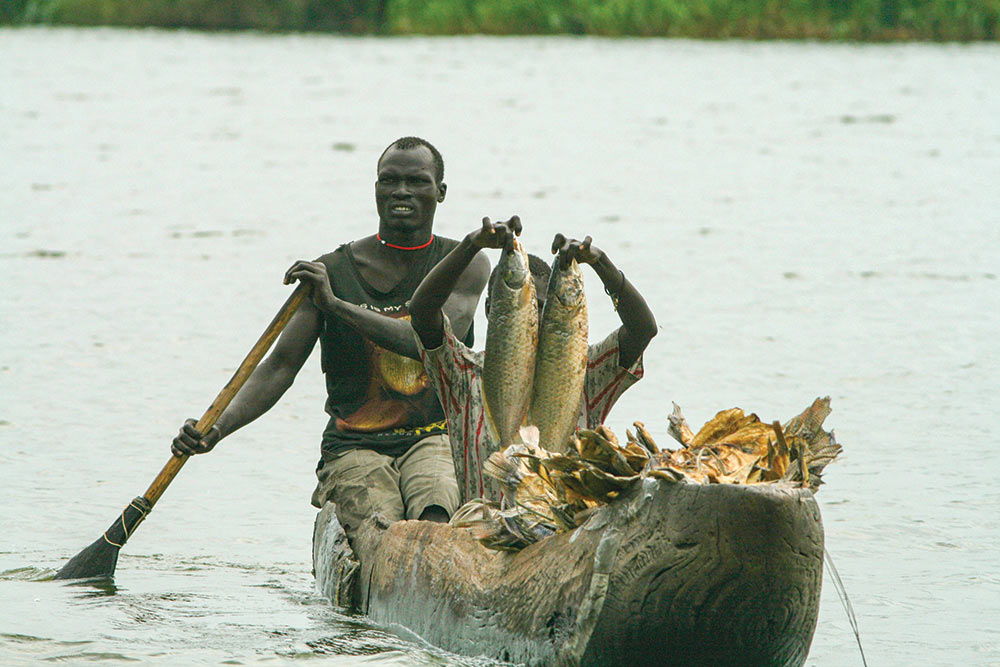
Based on the realisation that strong personalities are one central aspect in preventive diplomacy,44 the peacemaking between Ethiopia and Eritrea initiated by Ethiopian Prime Minister Abiy Ahmed might provide momentum for further conflict transformation in the region. Thus, a mediation process regarding the use of the Nile should be initiated. Mediation should focus on Egypt, Sudan and Ethiopia as the main actors that depend most on the Nile or want to increase their usage of Nile water the most. National interests dominate and hinder cooperation among the Nile riparian states, because they do not take into account how benefits are interconnected with other riparian states. Multi-track diplomacy has the potential to change perceptions to foster cooperation. To overcome national interests and work towards cooperation, diplomatic efforts should be based on African approaches to conflict resolution, emphasising that one’s well-being is intrinsically linked to the well-being of others. This could help to change perspectives of cooperation from mutual benefit to interconnected benefit, emphasising how benefits of individual countries are connected to the benefits of other countries. Thus, a perspective of interconnectedness could help to move policies from self-interested striving for domination towards equitable resource-sharing of the Nile water, based on pan-African solidarity. Furthermore, an African approach to conflict resolution could strengthen the ownership of the mediation process by providing legitimacy. This implies that the mediator implementing concepts such as ubuntu, social solidarity and coexistence as a framework for mediation should be African. Communities dependent on the Nile should be involved in the mediation process to help change perspectives and trickle-up information on the effects of the Nile projects on people, and how the benefits and disadvantages of Nile water usage are interconnected.